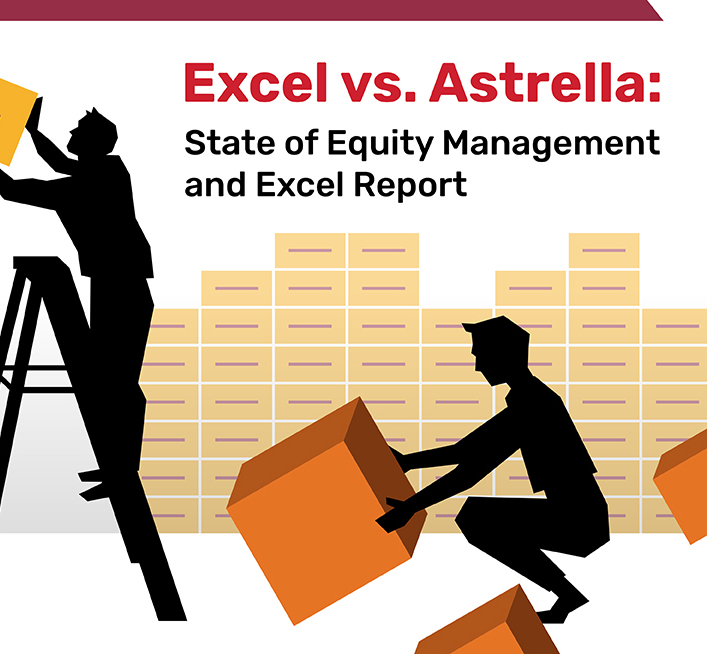The regulatory landscape for equity management is experiencing rapid changes in 2024, and businesses must stay informed and compliant to avoid risks and maintain a competitive edge. This article delves into the evolving regulations that impact equity management, including ESG compliance, startup equity and cross-border fundraising in the EU, shifting priorities for SEC and EU regulations for technology in equity management, and equity compensation transparency. By understanding and adhering to these changes, companies can effectively navigate the complex regulatory environment and position themselves for success in the current business landscape.
Changes in the Regulatory Landscape
The regulatory landscape for equity management is profoundly transformed by increased environmental, social, and governance (ESG) investing. This trend has placed companies under the watchful eye of regulators seeking to ensure responsible and sustainable business practices.
In the United States, the Securities and Exchange Commission (SEC) has proposed new regulations that demand greater transparency in ESG practices. These proposed rules aim to equip investors with the information they need to make informed decisions aligned with their ESG values. Companies must disclose comprehensive data on their environmental impact, social initiatives, and governance frameworks. This move towards transparency aims to hold companies accountable and empower investors to drive positive change through their investment choices.
Across the Atlantic, the European Union (EU) has joined the chorus of regulatory action by implementing a new directive on sustainability reporting. This directive mandates companies to disclose standardized and comparable ESG data, fostering transparency and comparability across the market. The EU’s directive ensures that investors can assess and contrast the sustainability performance of different companies, promoting informed decision-making and encouraging businesses to prioritize ESG factors.
These regulatory developments in the US and EU signal a global shift towards ESG compliance and transparency. Companies operating in these regions must adapt their equity management strategies to meet these evolving expectations. Failure to comply could lead to reputational damage, legal consequences, and diminished investor confidence. The regulatory landscape is clear: companies must embrace ESG principles and demonstrate a commitment to responsible and sustainable practices to thrive in the modern investment landscape.
Focusing on ESG Compliance
Environmental, social, and governance (ESG) factors are becoming increasingly important for investors and stakeholders in today’s business landscape. Companies prioritizing ESG issues are often seen as more responsible and sustainable, leading to improved financial performance and a competitive advantage. Regarding equity management, ESG compliance is essential for ensuring that a company’s practices align with its ESG goals and values:
- One key aspect of ESG compliance in equity management is diversity and inclusion. Companies should strive to have a diverse workforce and board of directors, as this can lead to better decision-making and improved financial performance. Additionally, companies should have policies in place to prevent discrimination and harassment and to ensure equal opportunities for all employees.
- Another critical aspect of ESG compliance is environmental sustainability. Companies should take steps to reduce their environmental impact, such as by reducing energy consumption, conserving water, and recycling waste. Additionally, companies should have policies to manage their supply chains sustainably and ensure that their products and services are produced in an environmentally responsible manner.
- Finally, companies should also focus on social responsibility in their equity management practices. This includes ensuring that employees are treated fairly, and their rights are respected. Additionally, companies should have policies to support local communities and contribute to social causes.
By focusing on ESG compliance in equity management, companies can demonstrate their commitment to responsible and sustainable practices. This can lead to improved financial performance, a competitive advantage, and increased stakeholder trust.
Startup Equity and Cross-Border Fundraising in the European Union
The EU has introduced new regulations to simplify cross-border fundraising for startups to create an environment encouraging entrepreneurship and innovation. These regulations are designed to remove barriers and make it easier for startups to raise capital from investors across the EU.
One of the fundamental changes these regulations bring is introducing a new, simplified process for issuing equity-based crowdfunding. Under the new rules, startups can raise up to 5 million euros through equity-based crowdfunding without publishing a prospectus. This simplified process is expected to make it easier for startups to access capital from a broader range of investors.
Another critical aspect of the new regulations is harmonizing tax treatment for startup equity. Previously, the tax treatment of startup equity varied from country to country, which created uncertainty for investors and startups alike. The new regulations introduce a more consistent approach to the taxation of startup equity, which is expected to make it more attractive for investors to invest in startups across the EU.
In addition to simplifying cross-border fundraising and harmonizing tax treatment, the new regulations include measures to protect investors. These measures include requirements for startups to provide investors with clear and accurate information about their business and the risks involved in investing in startups.
Overall, the new regulations introduced by the EU are a positive step towards creating a more favorable environment for startups and entrepreneurs. By simplifying cross-border fundraising, harmonizing tax treatment, and protecting investors, the EU is making it easier for startups to access capital and grow their businesses.
Shifting Priorities for SEC and EU Regulations for Technology Meant for Equity Management
The SEC and the EU are both increasingly focused on using technology in equity management. This section will discuss the shifting priorities of these regulators, with a focus on cybersecurity, data privacy, artificial intelligence (AI), blockchain, and interoperability.
In cybersecurity, the SEC and EU emphasize the need for robust measures to protect sensitive investor data from unauthorized access, use, or disclosure. This includes implementing robust authentication mechanisms, encryption protocols, and regular security audits. The EU’s General Data Protection Regulation (GDPR) sets comprehensive data privacy requirements, requiring companies to obtain explicit consent from investors before collecting and processing their personal information.
The SEC and EU are also closely scrutinizing the use of AI in equity management. They recognize the potential benefits of AI in enhancing efficiency and accuracy but also acknowledge the risks associated with its use, such as algorithmic bias and lack of transparency. Regulators call for greater transparency and accountability in AI-powered decision-making processes, including clear explanations for AI-generated recommendations.
Blockchain technology has emerged as a promising tool for enhancing transparency and security in equity management. The SEC and EU are exploring the potential of blockchain to streamline processes such as share issuance, trading, and settlement. However, they also recognize the need for appropriate regulatory frameworks to address scalability, interoperability, and market manipulation issues.
Interoperability, the ability of different systems and technologies to work together seamlessly, is another critical focus area for regulators. The SEC and EU are encouraging the development of open standards and protocols to facilitate data exchange and integration between different equity management systems. This will promote competition, innovation, and better services for investors.
In summary, the SEC and EU are actively shaping the regulatory landscape for technology in equity management. Their focus on cybersecurity, data privacy, AI, blockchain, and interoperability aims to strike a balance between fostering innovation and protecting investors. By staying abreast of these evolving regulations, companies can ensure compliance, mitigate risks, and leverage technology to drive growth and success in equity management.
Equity Compensation Transparency
Equity compensation transparency is a crucial area of focus for regulators in 2024. The SEC is increasing its focus on improving disclosure requirements for equity compensation, while the EU is emphasizing transparent and fair remuneration policies, including equity compensation. Investors and stakeholders also pressure companies to be more transparent about their equity compensation practices.
There are several reasons why equity compensation transparency is essential. First, it helps investors make informed decisions about their investments. When investors can access clear and accurate information about a company’s equity compensation practices, they can better assess its risks and rewards. Second, equity compensation transparency helps to promote fair and equitable compensation practices. When companies are transparent about their equity compensation practices, it helps to ensure that all employees are treated fairly and that there is no discrimination in compensation. Third, equity compensation transparency helps to build trust between companies and their stakeholders. When companies are open and honest about their equity compensation practices, it helps to build trust and credibility with investors, employees, and other stakeholders.
However, there are also challenges associated with achieving equity compensation transparency. One challenge is that companies may be reluctant to disclose sensitive information about their equity compensation practices. Another challenge is that there is no one-size-fits-all approach to equity compensation transparency. The specific disclosure requirements appropriate for a particular company will vary depending on the company’s size, industry, and other factors.
Despite the challenges, equity compensation transparency is an important goal that companies should strive to achieve. By being transparent about their equity compensation practices, companies can build trust with their stakeholders, promote fair and equitable compensation practices, and help investors make informed investment decisions.
Conclusion
In conclusion, the regulatory landscape for equity management is undergoing significant changes in 2024. Companies must stay abreast of these evolving regulations to ensure compliance and maintain a competitive edge. Key focus areas include ESG compliance, startup equity and cross-border fundraising, technology regulations, and equity compensation transparency.
A robust cap table solution can prove invaluable in navigating these regulatory shifts. It is a centralized platform for managing all equity-related data, ensuring accuracy and consistency. Moreover, it automates complex calculations, such as dilution and equity ownership, facilitating regulatory compliance.
By leveraging a comprehensive cap table solution, companies can effectively monitor and manage their equity structures, mitigate risks, and make informed decisions. This not only enhances operational efficiency but also fosters stakeholder trust and transparency. In today’s dynamic regulatory environment, embracing technology-driven solutions is essential for equity management success.

Tom Kirby
Tom Kirby serves as the Head of Global Sales at Astrella. With more than 20 years of experience in sales and business development, he is dedicated to fostering strong client relationships and assisting both private and public companies in understanding and effectively communicating their value.
- Tom Kirby#molongui-disabled-link
- Tom Kirby#molongui-disabled-link
- Tom Kirby#molongui-disabled-link
- Tom Kirby#molongui-disabled-link
































































































































